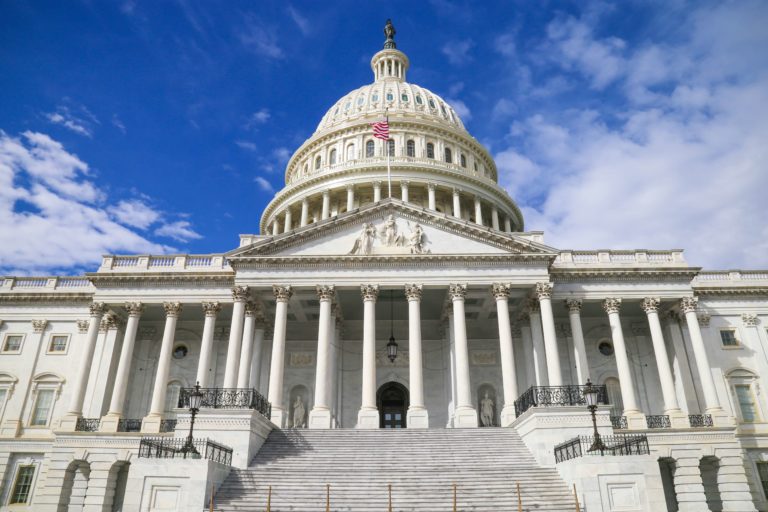Is VA Ready for Full Implementation of Appeals Reform?

CCK Law: Our Vital Role in Veterans Law
On Wednesday, December 12th the House Veteran Affairs Committee held a hearing entitled “Is VA Ready for Full Implementation of Appeals Reform?” with the goal of examining the Department of Veterans Affairs progress in implementing the Veterans Appeals Improvement and Modernization Act of 2017.
Visit our blog to see how the New VA Appeals Process will operate.
VA’s Progress for Implementation of Appeals Reform
Officials from the Department of Veterans Affairs testified that VA is on-track to meeting its February 2019 goal for full implementation of Appeals Reform. Here is what VA has done since the last hearing in March of 2018:
- IT systems for the Veterans Benefits Management System (VBMS) have been tested and deployed.
- VA has hired about 450 (75%) of its budgeted 605 new full-time claims processors at regional offices in St. Petersburg, FL and Seattle, WA.
- Training for all employees at the Veterans Benefits Administration and the Board of Veterans’ Appeals has begun.
- VA has tested the new appeals process through its pilot program, the Rapid Appeals Modernization Program (RAMP), and has collected data to assess how veterans will use the new appeals system in the future.
- The Department has implemented some measures to gauge veterans’ satisfaction between the new and Legacy appeals systems, such as surveys.
- VA has reduced its claims inventory by 9.6% in FY 2018, despite receiving 188,000 new appeals.
- The Board of Veterans’ Appeals has issued 60% more decisions in FY 2018 than in FY 2017.
- Over 33,000 higher-level review and supplemental claims have been decided in an average of 120 days, totaling $137 million in retroactive benefits.
Government Accountability Office (GAO) Concerns
Although VA has executed many of the recommendations instituted by the GAO, such as the implementation of IT systems, many more have yet to be met. “VA has made some concrete progress to improve its planning for disability appeals reform…however, significant risks exist with launching the new process in February,” said Elizabeth Curda of the GAO. Here are GAO’s remaining concerns:
- VA’s implementation plan for the Appeals Modernization Act does not propose metrics that would monitor the success of implementation and performance of the new system, nor does it contain enough information to determine what resources will be needed upon certification.
- Although VA has introduced surveys to measure veterans’ satisfaction of the Legacy appeals system and RAMP, no other measures have been detailed to assess the relative performance of the two systems.
- VA’s project plan for implementation is still lacking key details. For example, the plan does not contain a break-down of what work and resources are needed to accomplish project tasks. Further, VA still has 117 actions to meet prior to the February implementation of Appeals Reform. Lack of detail in the aforementioned project plan presents risks to successfully completing these tasks on time.
- GAO foresees large numbers of veterans appealing directly to the Board under the new Appeals Reform system. Additionally, about half of these veterans are likely to select a hearing. This may exacerbate the already massive appeals and hearings backlogs at the Board of Veterans’ Appeals. (see below)
The Government Accountability Office testified that it believes VA should delay implementation of Appeals Reform in order to phase in the new Board options and to develop a contingency plan in the event outcomes are not as expected. Representatives from VA, however, disagreed and believe that the Department is on-track to a successful, timely implementation.
What about the Existing Backlog?
Although department officials were optimistic that the backlog across VBA will not increase following implementation of Appeals Reform, the Board could not provide an estimate of when remaining appeals in the Legacy system will be adjudicated. The Veterans Benefits Administration, not including the Board, set the goal of completing Legacy appeals in FY 2020.
VA estimates that by February 2019, the date of implementation, 500,000 claims and appeals will remain in the Legacy appeals system. Additionally, 30,000 Legacy appeals are remanded from the Board each year. The average wait time veterans face following submission of a Notice of Disagreement within the Legacy system is currently between three and seven years.
Chairman of the Board of Veterans’ Appeals, Cheryl Mason, stated that the Board and the Veterans Benefits Administration will prioritize legacy appeals following implementation of Appeals Reform, and that VA is aware of the resources that will be needed to process claims in both systems.
About the Author
Share this Post
